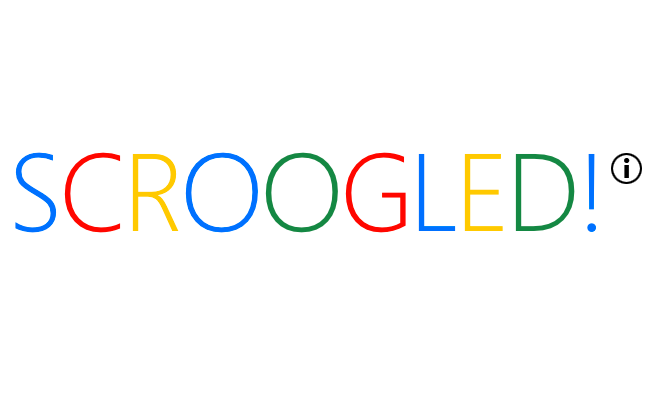
Microsoft’s latest attempt to drag down Google has again fallen flat. But that hasn’t deterred Redmond, which insists it will press on with its high-profile “Scroogled” attack-ad campaign on Google’s Gmail and search.
“Scroogled” launched last Thanksgiving across television, newspapers, YouTube and social media. The ads claimed that Google users were being Scroogled — a phrase intended to evoke the miserly Ebenezer Scrooge from A Christmas Carol — because the search giant reads their email (in order to sell advertising in Gmail) and delivers slanted results for product searches (because Google mixes paid ads with normal search results).
The campaign, however, hasn’t exactly had the desired effect. While more than 114,000 people signed a Microsoft petition asking Google to “stop going through your email to sell ads,” there’s little sign it had any impact on Gmail or Google search. A report from KQED late last week suggested that Microsoft was throwing in the towel on the Scroogled ads, although Redmond now insists that’s not true, as per this statement it provided to ReadWrite:
Scroogled will go on as long as Google keeps Scroogling people. We know Google doesn’t like it when the facts come out. Chapter two of the consumer education campaign has shown people care about their privacy. More than 3.5 million people visited scroogled.com, and nearly 115,000 people signed a petition asking Google to stop going through their Gmail. Stay tuned for the next chapter.
In other words: Pay no attention to that Microsoft official behind the curtain. We have always planned to run the Scroogled campaign until the end of time — or until we triumph over Google. Whichever comes first.
ReadWrite editor-in-chief Dan Lyons noted last month that the Microsoft campaign was little more than “another pathetic smear campaign” against Google:
The gist of the scare campaign is that Google is a scary, scary company that reads your private emails in order to send you targeted ads. “Even if you don’t use Gmail, if you send email to someone who does, Google goes through those emails to generate advertising revenue too,” Microsoft warns in material sent to reporters. Oh, and Microsoft points out that six class-action lawsuits have been filed against Google over this issue, and asks people to sign a petition “to tell Google to stop going through your personal email messages.”
The latest ComScore search data for the U.S. reveals that core search market share for Google sites rose to 67% in January from 66.7% in December, a 0.3% increase. Microsoft sites also saw an increase, albeit a smaller one, in search market share — to 16.5% from 16.3% , a 0.2% increase. Yahoo, AOL and Ask all experienced minor drops.
In other words, if Microsoft really wants to boost its search presence, it may want to consider acquiring the also-rans. Its frontal assault on Google appears to be doomed to failure.
Email usage is harder to track for a number of reasons, but KQED quotes Microsoft official Stefan Weitz acknowledging that the campaign hasn’t exactly unseated Gmail. “It’s a habit,” Weitz said, apparently referring to Gmail. “It’s like smoking. It’s hard to get folks to stop doing it.”
Here’s another look at the late, unlamented first phase of Microsoft’s Scroogled campaign:

















